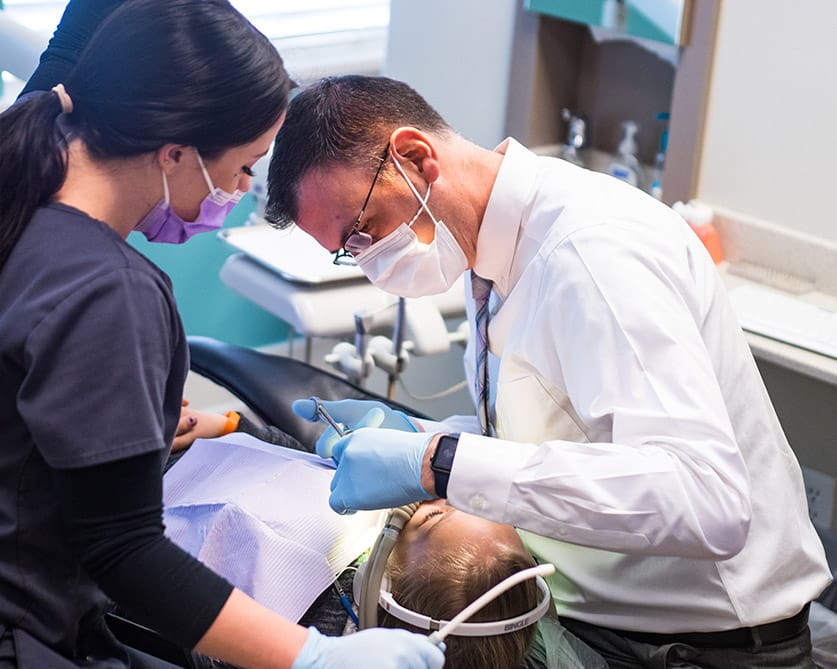
About Tooth Extractions
When a tooth has extensive decay or is damaged beyond repair, it must be removed.
When are Teeth Extracted?
There are many reason why an teeth extractions may be required, your dentist may recommend such a course of action in any of the following:
- Overcrowding: When you do not have enough space in the jaw, your teeth can come out overcrowded. The dentist will remove the excess teeth in preparation for orthodontic or teeth alignment treatment.
- Impacted Wisdom Teeth: Wisdom teeth are the last set of molars to come out. Some people may have all the four teeth come out and fit in the mouth properly. However, more often than not, the teeth can come out partially or get impacted because of a lack of space. Impacted wisdom teeth are painful can lead to other dental problems if not addressed on time.
- Infection: If you have decay that extends to the pulp, the dentist can perform a root canal therapy. However, in severe cases, we will refer to an endodontist to extract the tooth to stop the spread of infection in order to preserve your other teeth.
- Periodontal Disease: Severe gum disease can cause weakening of the teeth and prompt an extraction.
- Paving the Way: If the baby teeth do not fall out on time, the dentist can remove them to pave way for the permanent ones.
How are Dental Extractions Performed?
There are two broad types of tooth extraction procedures; simple and surgical, and either will depend on the nature of the tooth scheduled to be removed and it’s involved structures.
Simple Extractions: Non-Surgical, often called a simple tooth extraction, is typically done on a visible tooth. These can often be performed by a general dentist and require only a local anesthesia. We do offer sedation for those patients who require a little more TLC.
Your dentists will typically hold the visible part of the tooth with forceps and wiggle it back and forth in order to separate it from the socket. Recovery from such extractions are usually pretty quick lasting around 4 days.
Surgical Extractions: Typically most surgical extractions are referred out to a specialist as they involve structures under the gums and can often require IV or deep sedation.
What to Expect After the Teeth are Extracted?
The most common occurrence after the extraction is gum bleeding. This can be controlled by simply biting on some gauze for 20 minutes. This will aid in forming a blood clot on the socket to facilitate healing. After this it is crucial to protect that clot and prevent it from breaking or unsealing which would drastically slow healing time. If a rupture does occur, you will typically have pain and notice bad breath to indicate infection.
A good mouth wash and sponge brushing after extraction will always help. Always follow your dentists or specialists recommended after care instructions for best results.

Our dental team will do everything we can to prevent tooth loss if possible. We always encourage our patients to maintain good oral hygiene and provide all the tools you’ll need to achieve that. But we know that tooth extractions are just part of life and you can still enjoy a confident smile.
